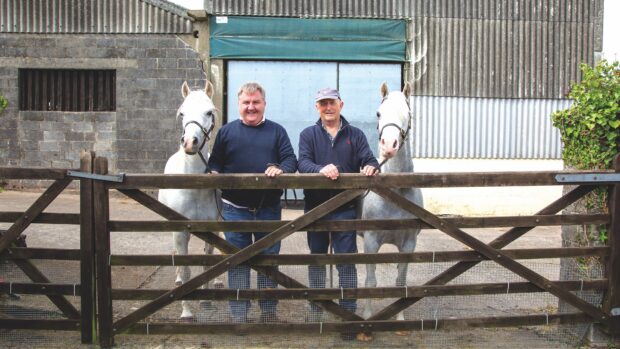BREED societies are taking positive steps to ensure the ongoing ability to register rare-breed and native horses and ponies abroad following Brexit.
After Britain left the EU, foreign studbooks had to apply to Defra for an extension of breeding territory so horses and ponies in the UK could still be registered with them. The move has affected many foreign sport-horse studbooks that were not granted permission (news, 24 February), but also has an impact on UK breed societies, which have to apply to EU countries for the same extension of breeding territory.
The Clydesdale Horse Society and the Welsh Cob and Pony Society are among those taking steps to ensure foreign breeders can continue to register foals with their studbooks. The Clydesdale Horse Society, which registers around 200 foals a year, 25 of these in EU countries, has created daughter studbooks in Germany and Ireland. The German studbook will cater for breeders in Germany, Austria and Switzerland, and the Irish for Denmark – but other EU countries can apply for extension of breeding territory.
Clydesdale Horse Society secretary Ian Roy told H&H the creation of the daughter studbooks was a “positive and proactive solution”.
“We found colleagues in Germany and Ireland who were willing to take us on and run with us,” he said. “It’s taken almost a year to get them up and running, but we’re now approaching each EU country seeking an extension of the Irish studbook into these countries and we’re finding there’s a lot of cooperation.”
The Welsh Pony and Cob Society already had daughter studbooks in EU countries, and around the world, but ahead of Brexit the organisation worked with the Welsh Government to come up with a solution to still allow EU breeders to register on the UK studbook, as this is still favoured among many EU breeders.
“We wanted to work around this because we did not want to lose the gene pool and the work of those overseas breeders who have for many generations worked hard to breed high-quality stock,” said a spokesman for the society.
“We have now split the document – you have the passport as an identification document with the microchip, and a separate breeding registration document. Although we cannot issue a passport to EU-bred ponies because of the legislation, overseas breeders can scan their passport from their country of origin and email it to us with the pedigree. If it complies with our rules and regulations, we can register them on our overseas register and they go into our studbook alongside UK-bred animals, so this secures the pedigree and bloodlines.”
Rare Breed Survival Trust chief executive Christopher Price told H&H Brexit had “clearly created challenges” for equine breed societies as it has in many other sectors including livestock, but said “although it is cumbersome, expensive and time consuming, there is a way round it through the creation of daughter studbooks”.
You might also be interested in:

Post-Brexit opportunity for British studbooks

Concerns as European studbooks refused UK permission since Brexit

Subscribe to Horse & Hound magazine today – and enjoy unlimited website access all year round
Horse & Hound magazine, out every Thursday, is packed with all the latest news and reports, as well as interviews, specials, nostalgia, vet and training advice. Find how you can enjoy the magazine delivered to your door every week, plus options to upgrade your subscription to access our online service that brings you breaking news and reports as well as other benefits.




